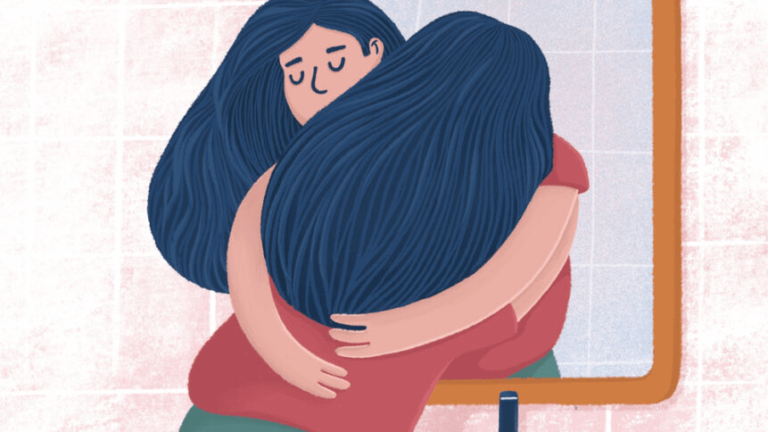The Silent Struggle: Miscarriage and Its Emotional Toll

Introduction
Miscarriage is more than a physical event—it’s a profound emotional experience that can leave lasting scars. While conversations about pregnancy are often celebrated, miscarriage is rarely discussed, making it an isolating and silent struggle for many. This article explores the emotional toll of miscarriage, highlighting the grieving process, mental health effects, and ways to support oneself or a loved one during this difficult time.
Understanding the Emotional Impact of Miscarriage
Emotional Reactions After a Miscarriage
Common emotional responses include:
- Grief and Sadness: Feeling a deep sense of loss and emptiness.
- Anxiety: Fear about future pregnancies and health concerns.
- Guilt and Blame: Wondering if personal actions caused the miscarriage.
- Depression: Persistent sadness, hopelessness, or withdrawal from daily life.
The intensity of these emotions can vary, with some parents experiencing profound grief while others feel numb or detached.
Why Miscarriage Is Often a Silent Struggle
Miscarriage is frequently a silent struggle because of societal norms and cultural stigmas.
Social Silence and Stigma
- Taboo Topic: Many cultures avoid discussing pregnancy loss, considering it a private or shameful matter.
- Lack of Awareness: Limited societal understanding of the emotional trauma involved.
- Fear of Judgment: Parents may fear blame or insensitive comments from others.
Breaking the silence around miscarriage can help normalize the experience, fostering empathy and understanding.
Emotional Stages of Miscarriage Grief
The grieving process after miscarriage mirrors the five stages of grief, though not everyone experiences them linearly:
- Shock and Denial: “This can’t be happening.”
- Anger: “Why me? Life is unfair.”
- Guilt and Bargaining: “Did I do something wrong?”
- Sadness and Depression: Overwhelming sadness and feelings of emptiness.
- Acceptance: Finding peace and learning to live with the loss.
Cultural and Societal Perspectives on Miscarriage
Different cultures perceive and handle miscarriage in unique ways:
- Western Cultures: Miscarriage is often viewed as a private matter, though awareness is growing.
- Asian and African Cultures: Pregnancy loss can carry social stigma, with some cultures attributing it to fate or spiritual beliefs.
- Indigenous Traditions: Many Indigenous communities honor the unborn through spiritual rituals and ceremonies.
How Miscarriage Affects Mental Health
Common Psychological Effects
- Anxiety and PTSD: Fear of another miscarriage or pregnancy-related trauma.
- Depression: Feelings of sadness, worthlessness, and hopelessness.
- Post-Traumatic Growth: Some people find new meaning or purpose through the experience.
Early intervention through counseling and therapy can prevent long-term mental health challenges.
Impact on Relationships After Miscarriage
- Partner Support: Open communication helps couples process grief together.
- Marital Strain: Miscarriage can either strengthen or strain a relationship.
- Family Dynamics: Extended family members may not fully understand the loss, causing feelings of isolation.
Coping Mechanisms for Emotional Healing
Therapeutic Approaches
- Individual Therapy: One-on-one counseling with a mental health professional.
- Support Groups: Connecting with others who have experienced similar losses.
- Mindfulness and Meditation: Managing anxiety through relaxation techniques.
- Journaling: Expressing thoughts and emotions in a personal diary.
When to Seek Professional Help
Seek professional help if you experience:
- Persistent sadness, hopelessness, or guilt.
- Difficulty functioning in daily life.
- Anxiety attacks or PTSD symptoms.
- Thoughts of self-harm or suicidal ideation.
Mental health support from trained professionals can provide essential tools for healing.
Supporting a Loved One Through Miscarriage
- What to Say:
- “I’m here for you.”
- “I’m so sorry for your loss.”
- “How can I support you right now?”
- What to Avoid:
- “At least you can try again.”
- “It wasn’t meant to be.”
- “Everything happens for a reason.”
How Partners Experience Miscarriage
Partners often experience “silent grief,” struggling emotionally while feeling pressure to stay strong. Encouraging partners to share their feelings can help them feel supported and included in the healing process.
Pregnancy After Miscarriage: Facing New Fears
Trying for another pregnancy can trigger anxiety and fear of another loss. Emotional preparation, counseling, and supportive medical care can help build confidence for future pregnancies.
For tips on managing pregnancy-related stress, explore this First-Trimester Survival Guide.
FAQs About Miscarriage and Emotional Health
1. How long does it take to recover emotionally after a miscarriage?
Emotional recovery varies, taking weeks to years, depending on individual circumstances.
2. Can therapy help after a miscarriage?
Yes, counseling can help process grief, reduce anxiety, and restore mental health.
3. Is it normal to feel guilty after a miscarriage?
Yes, but it’s important to understand that most miscarriages are not caused by anything you did or didn’t do.
4. How can I help a friend who has miscarried?
Offer a listening ear, avoid judgment, and be present for emotional support.
5. Can future pregnancies be emotionally easier?
While fear of another loss is common, supportive care and counseling can ease anxiety.
Conclusion
Miscarriage is a deeply personal and emotional experience. Though it may feel isolating, you are never alone. By acknowledging the silent struggle of miscarriage, we can create a world where pregnancy loss is met with empathy, support, and understanding. Reach out, seek help, and remember that healing is possible.






